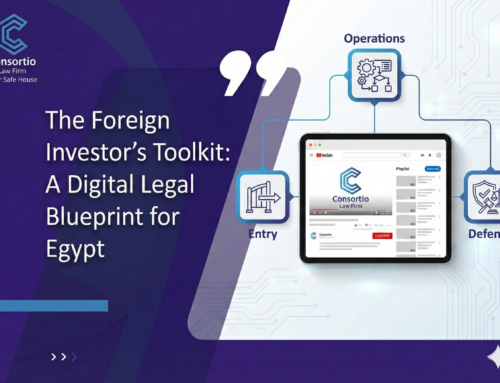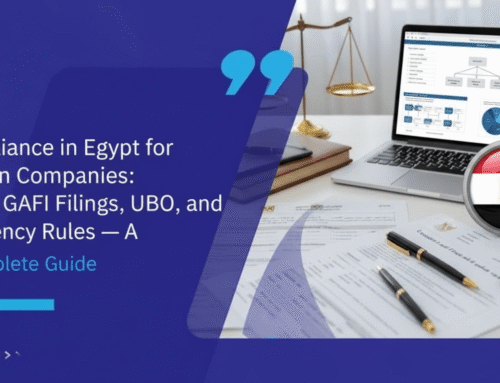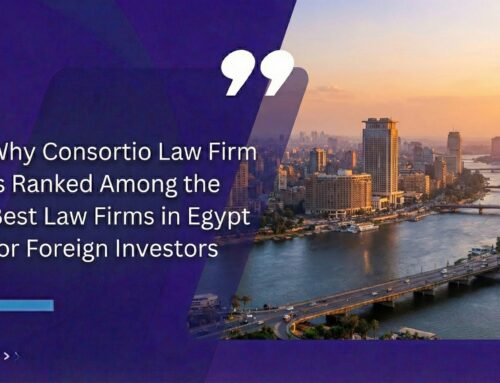In the competitive landscape of modern business, success doesn’t just come from hard work, it comes from the power you wield. Agent’s Authority is more than just a role or a title, it’s a mindset, a presence and an ability to make things happen. Whether negotiating deals, guiding clients or navigating complex challenges, having the right agent with proper authority by your side what gives you the confidence to lead, the capability to influence and the trust to build lasting relationships.
Understanding the Scope of an Agent’s Authority
The agent’s authority refers to the range of actions and decisions an agent is authorized to make on behalf of the principal (the person or entity the agent represents). Understanding this concept is essential in both business and legal contexts, as it determines the boundaries within which the agent can act and make decisions.
In Egyptian law, the scope of an agent’s authority is primarily governed by the Egyptian Civil Code (Law No. 131 of 1948). The concept of agency is rooted in the general principles of contract law and is largely regulated under the sections dealing with mandate and agency.
To understand the scope of an agent’s authority, you generally consider:
-
The contract or agreement
The agent’s authority is often explicitly defined within a formal contract. For example, a real estate agent may only have the authority to act on the sale of a property, not to make decisions about other aspects of the principal’s finances.
-
Custom and practice
Even without written agreement, the usual practices in a particular industry or field may help define what is generally acceptable.
-
Principal’s conduct
The principal’s statements and actions often give clues as to how much authority has been granted.
The agent’s authority is a critical concept in legal and business environments, as it defines the range of actions the agent can take on behalf of the principal. Understanding this scope helps ensure that both parties, the principal and the agent, are clear about their responsibilities and it protects both the principal’s interests and the agent from liability or misunderstandings.
Types of Authority Held by Agents
There are several types of authority an agent may hold, each with specific implications and limitations. Here’s the main types include:
-
Express Authority
Express authority is granted explicitly by the principal, specifying tasks the agent can perform. In business, it could involve authorizing an agent to sign contracts or negotiate deals, with clearly defined limits.
-
Implied Authority
Implied authority allows the agent to take necessary actions not explicitly stated but needed to fulfill their duties. For instance, an agent managing a store can hire staff or order stock without needing specific instructions.
-
Apparent Authority
Apparent authority occurs when third parties believe the agent has authority based on the principal’s actions, even if not formally granted. In business, if an agent regularly signs contracts, others may assume they are authorized.
-
General Authority
General authority gives an agent broad power to manage various business affairs, like handling finances or contracts. It’s often granted through a power of attorney, allowing the agent to act widely within the company’s needs.
-
Special Authority
Special authority is limited to specific tasks or transactions. For example, an agent may only be authorized to sell a property or negotiate a single contract, with no power to act beyond those tasks.
-
Co-Agency (Joint Authority)
Co-agency involves multiple agents sharing equal authority. In business, major decisions may require both agents’ agreement, ensuring collective responsibility and joint decision-making.
-
Delegated Authority
Delegated authority allows an agent to transfer duties to another, with the principal’s consent. The original agent remains responsible for the task’s outcome. For example, a manager can delegate tasks but still holds responsibility.
The Importance of Clear Authority in Business Transactions
Clear authority in business transactions is vital for preventing misunderstandings, ensuring accountability and protecting the interests of both the principal and third parties.
Here’s why it’s so important:
-
Avoids Disputes and Legal Risks
Clear authority prevents disputes over whether an agent was authorized to make decisions, protecting the principal from legal challenges if the agent oversteps their bounds.
-
Ensures Accountability
Defined authority makes it clear who is responsible for actions, ensuring accountability when issues arise and making it easier to determine fault.
-
Protects Third Parties
Clear authority gives third parties confidence that the agent’s actions are valid, preventing them from being caught in disputes if the principal later denies the agent’s power, especially in cases of apparent authority.
-
Improves Business Efficiency
Defined, clear authority allows agents to make decisions quickly without waiting for approval, speeding up business processes and improving overall business efficiency.
-
Prevents Unauthorized Actions
Clear authority limits agents to specific tasks, reducing the risk of unauthorized decisions that could harm the business or its resources.
-
Facilitates Compliance
Clear authority helps ensure compliance with regulations, preventing violations by ensuring only authorized individuals perform specific tasks.
Agent’s Authority in International Transactions
In international transactions, an agent’s authority is crucial for ensuring smooth and legally binding business operations across borders. Here are the key points on agent’s authority in such transactions:
-
Varied Legal Systems
Agents must understand different legal systems, as authority in one country may not be recognized in another.
-
Compliance with Local Laws
Ensures agents comply with international laws, trade agreements and regulations.
-
Cross-Border Implications
An agent’s actions can have different legal effects in various jurisdictions, especially regarding apparent authority.
-
International Contracts
Clear authority is crucial in international contracts to avoid legal disputes over an agent’s power to act.
-
Cultural Differences
Cultural business practices can impact how authority is perceived and exercised across borders.
-
Apparent Authority
Apparent authority is key in international trade, as third parties may rely on an agent’s perceived power.
-
Agency Agreements
A written agreement is essential to define an agent’s authority, jurisdiction and legal frameworks.
-
Dispute Resolution
Clear dispute resolution mechanisms, like arbitration, help address authority-related issues in international transactions.
Legal Consequences of Overstepping an Agent’s Authority
Overstepping an agent’s authority can lead to significant legal consequences for both the agent and the principal. Here are the main consequences:
- Invalid Contracts: Contracts made outside the agent’s authority may be invalid or unenforceable.
- Liability for Damages: The agent may be personally liable for damages caused by exceeding their authority.
- Breach of Fiduciary Duty: Overstepping can violate the agent’s duty to act in the principal’s best interest.
- Ratification Risks: If the principal ratifies the unauthorized actions, they could still face unwanted consequences.
- Reputation Damage: The principal and agent may lose credibility and damage their reputation.
- Disputes and Litigation: Unauthorized actions often lead to legal disputes and costly Litigation.
- Financial Losses: The principal may incur financial losses due to the agent’s overreach.
- Termination of Agency: The principal can terminate the agency relationship immediately.
- Loss of Bargaining Power: Unauthorized actions can harm future negotiations and reduce trust in the principal.
Clear authority helps prevent these risks.
In a world where decision-makers are overwhelmed with choices, the authority an agent commands can be the deciding factor that inspires confidence, fosters loyalty and ultimately drives business growth. Thus, with the right authority by your side, you can influence decisions, build stronger client relationships and outpace your competitors with ease.
At “Consortio Law Firm”, we understand that clear, effective authority is key to unlocking success in any business transaction. Our experienced legal team ensures that your agents are empowered with the precise authority they need to act decisively, while safeguarding your interests at every turn.
Whether it’s drafting contracts, managing disputes or offering strategic counsel, we provide the legal framework to help you lead with confidence and secure long-term success.
For more details, please Contact us and Schedule your consultation Today via:
Phone number: (002-01028806061).
Email: (Info@consortiolawfirm.com).
FAQ
-
What is an agent’s authority?
An agent’s authority refers to the legal power granted to an agent to act on behalf of a principal in business or legal matters.
-
How is authority granted to an agent?
Authority is granted through an agreement or contract between the principal and agent.
-
Can an agent act outside their authority?
If the agent acts outside their authority, they may not bind the principal to the action, and the agent could be held liable.
-
Does apparent authority have legal weight?
Yes, apparent authority allows the agent to bind the principal in dealings with third parties who reasonably believe the agent has the authority.
-
Can authority be revoked?
Yes, the principal can revoke an agent’s authority at any time, unless it is a special type of authority, such as an irrevocable power of attorney.
-
What is the difference between actual and apparent authority?
Actual authority is the specific power given to an agent, while apparent authority arises when a third party believes the agent has the authority to act based on the principal’s behavior.
-
What is the role of a power of attorney in international transactions?
A power of attorney allows an agent to act on the principal’s behalf, often in legal or financial matters. POA documents may need to be translated and authenticated to meet local legal requirements.
-
What is the role of a local agent in a foreign country?
A local agent in a foreign country act as the intermediary between the principal and the local market, navigating cultural and legal norms, ensuring smooth transactions and representation for the principal.





